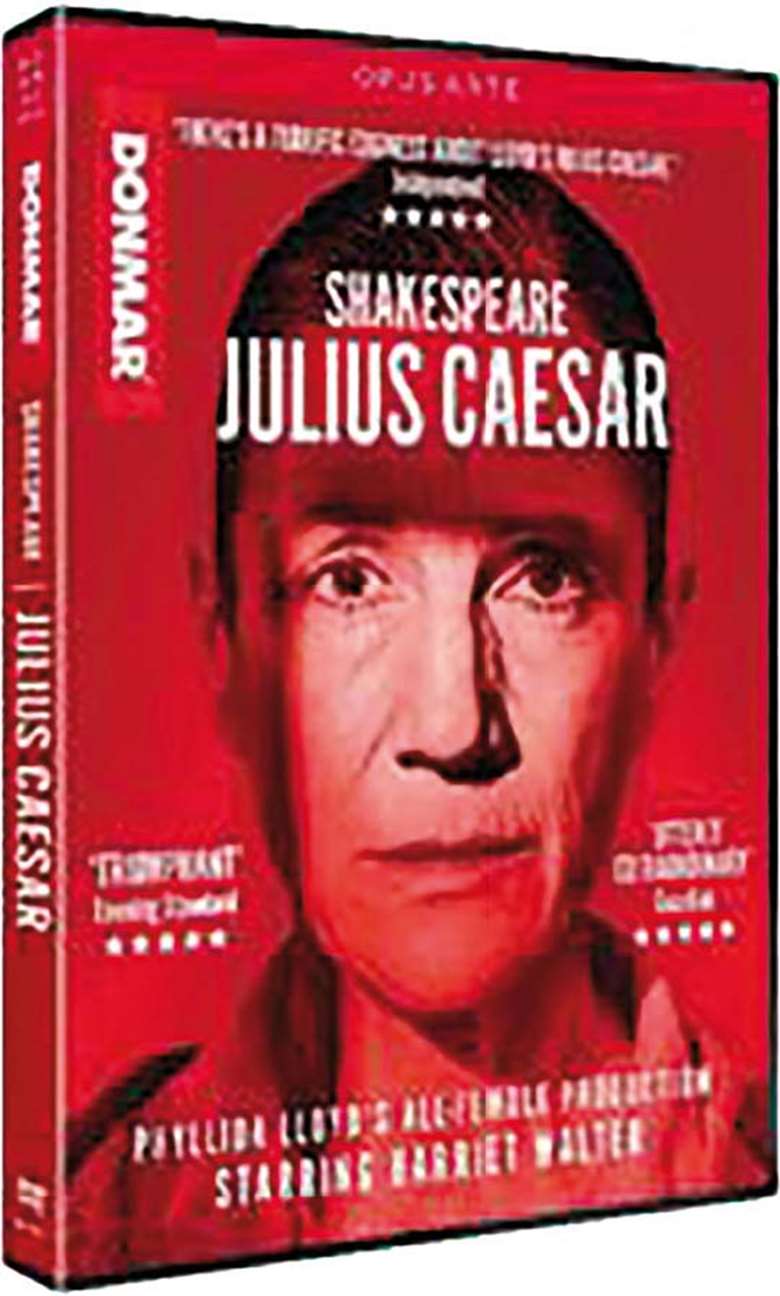Julius Caesar
Sarah Lambie
Wednesday, May 1, 2019
A gripping production and an insightful collection of extras make this an essential resource.

‘In 2012,’ director Phyllida Lloyd writes in the insert to the Julius Caesar DVD, ‘for every woman working in British theatre, there were two men.’ This was the climate in which Lloyd decided to present an all-female Trilogy of Shakespeare plays, with Harriet Walter in the starring roles – beginning with Brutus in Julius Caesar.
The play, performed originally at the Donmar Warehouse, but filmed for DVD in a specially built theatre in the round in Kings Cross, is set in a women's prison – an environment which the cast found during their workshops in prisons and with theatre company Clean Break very closely resembled Caesar's Rome and the characters which emerged there.
The production itself is excellent. The performances are passionate and compelling, and the prison setting of the play really helps to emphasise the ultimate helplessness of the conspirators and all their associates: particularly in moments where Lloyd has the day-today working of the prison interrupt the production. 33% of the original text has been cut, leaving a clean, stark story which rattles forward apace to its inevitable doom.
All aspects of the design: lighting and sound in particular, from James Farncombe and Tom Gibbons respectively, but also Bunny Christie's overall design, would be great inspiration for students choosing design pathways in their studies. Performances from Martina Laird as Cassius and Karen Dunbar as Casca stand out alongside Walter's Brutus and Jackie Clune's Caesar, but Jade Anouka's delivery of Mark Antony's rousing funeral speech is the best I have seen. The whole production is an exemplary piece of ensemble work.
There are, however, a number of extras which really add to this product's value as an educational resource. Liner notes from Robert Harris on Rome and from Deborah Coles (Executive Director of INQUEST) on women in the criminal justice system are extremely interesting, as are short films on aspects of the rehearsal process including character, staging violence, power and politics and performing gender. This last example is a hugely useful insight into a process for women required to play men, which I recommend highly. Finally, it is possible to watch the production overlaid with a commentary by Phyllida Lloyd: an absolutely invaluable insight into the process.
I can't recommend this DVD enough, and I look forward to Opus Arte's release of Henry IV and The Tempest–the remaining two productions in Lloyd's Trilogy.
Opus Arte's DVDs can be bought on Amazon or Presto. Visit http://www.opusarte.com/details/OA1224D

